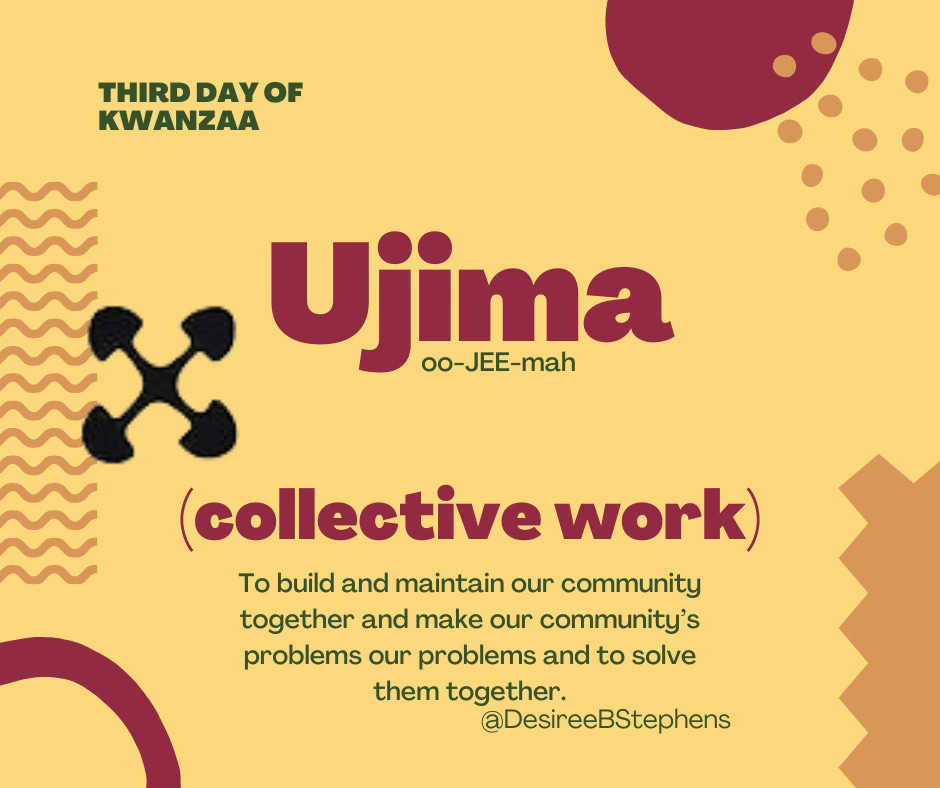Celebrating Ujima: The Third Day of Kwanzaa and Its Role in Healing and Decolonization
The Principle of Collective Work and Responsibility
Understanding Ujima - The Principle of Collective Work and Responsibility
On the third day of Kwanzaa, we celebrate Ujima (pronounced oo-JEE-mah), a principle that emphasizes collective work and responsibility. Ujima is about building and maintaining our community together, acknowledging that our problems are shared and must be addressed collectively.
Ujima as a Healing Force
Healing, especially in communities impacted by historical trauma, requires collective effort. Ujima recognizes that individual healing is intertwined with the well-being of the community. By working together, we not only share the burden of our struggles but also the joy of our achievements. This principle fosters a supportive environment, crucial for personal and communal healing.
Ujima and Decolonization
Decolonization involves dismantling structures and ideologies imposed by colonial powers and replacing them with systems that reflect the true identity and values of a community. Ujima plays a pivotal role in this process:
Collective Decision-Making: Ujima encourages decision-making processes that reflect the collective voice, moving away from hierarchical structures that mirror colonial systems.
Community Empowerment: By working together, communities can build economic, social, and political structures that serve their interests, countering the legacy of exploitation and marginalization.
Cultural Revival: Ujima fosters the revival of cultural practices and knowledge, essential for rebuilding a sense of identity and community that colonialism often sought to erase.
Celebrating Ujima
To embody Ujima, communities can engage in activities that strengthen their bond and commitment to each other:
Community Projects: Initiatives like neighborhood clean-ups, community gardens, or collaborative art projects symbolize and enact the principles of Ujima.
Group Discussions: Facilitated conversations about community issues, goals, and strategies for collective action are a practical application of Ujima.
Sharing Resources: Creating systems for sharing resources within the community, such as food banks or skill-sharing workshops, reflects Ujima's ethos.
Conclusion
The celebration of Ujima during Kwanzaa is a reminder of the power of collective action and responsibility. It's a call to come together for healing and to actively participate in the decolonization process, building a future that honors our shared history, culture, and aspirations. Ujima is not just a principle to be celebrated but a daily practice that can transform communities and empower individuals.
With love and care,
Desiree B Stephens




